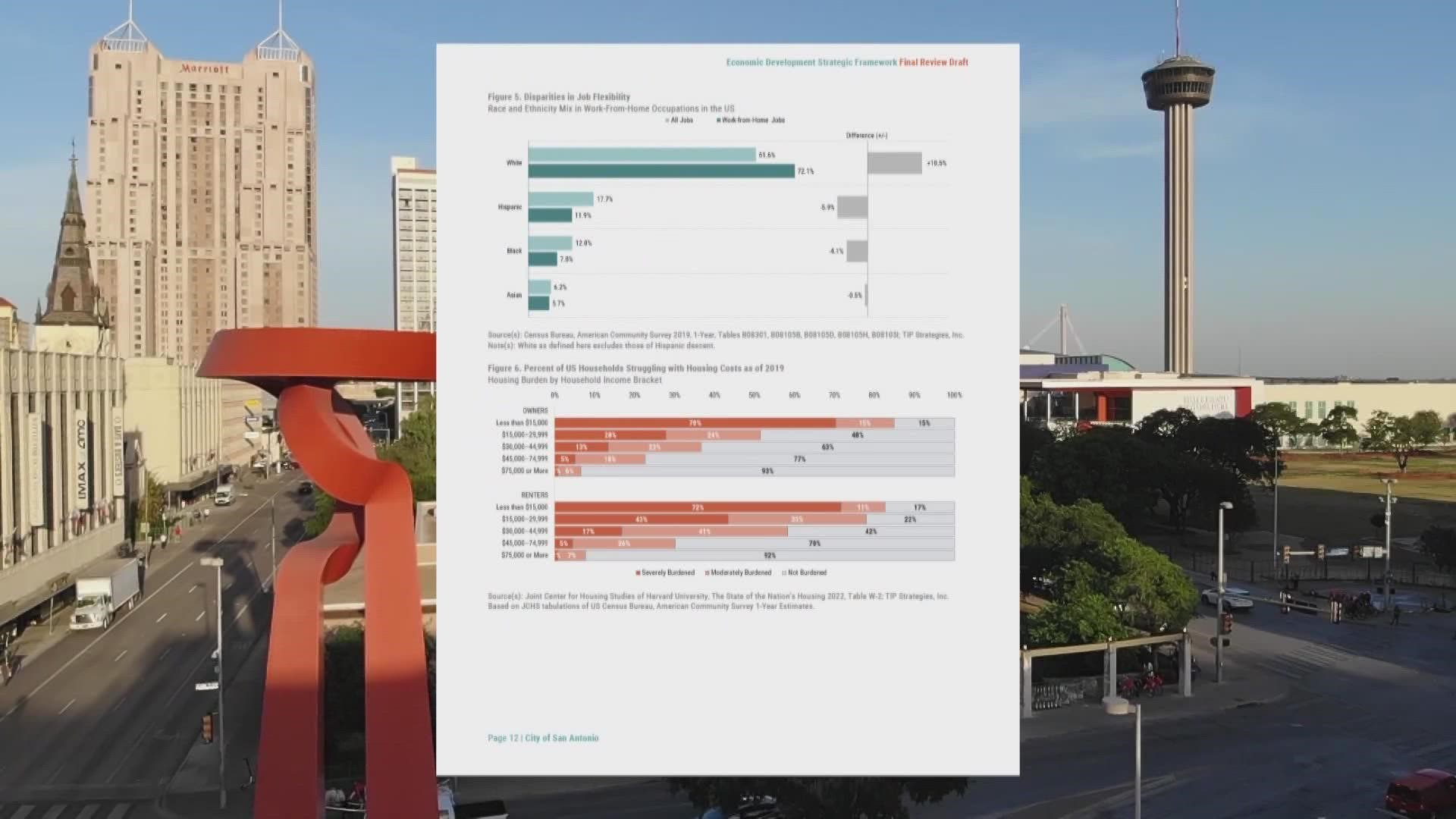SAN ANTONIO — "Cookie-cutter." "Hardly any specifics."
Those were phrases San Antonio City Councilmember Clayton Perry used to describe the Economic Development Strategic Framework created by Austin-based TIP Strategies, Inc.
The 64-page document is meant to be a "guiding document (that) defines the Economic Development Department’s (EDD) role in the pathway to a more resilient economy, providing direction on competing with national and global peers," according to the memorandum that proceeds it.
Yet, Councilmembers Perry and John Courage were critical of the document on Oct. 20 when it ultimately passed.
"I'm criticizing that we are contracting this out and the product that we got back because, again, a lot of this is ED (economic development) 101 with San Antonio sprinkled throughout the document," Perry said.
But was the document really so short on substance?
City Economic Development Director Brenda Hicks-Sorensen, who will be using concepts in the document along with the Economic Development Department, told KENS 5 the framework has, in fact, given the department new ideas, along with workable solutions for the city's economy.
Hicks-Sorensen said she knew San Antonio has many jobs paying under $20 an hour, but the framework revealed the city has a significant lack of high-paying jobs compared to other "peer" communities the city could be compared to.
As a result, Hicks-Sorensen said, the city is working on changing its economic incentive options in order to focus on employers that specifically offer higher-paying jobs to try and raise the median income of San Antonio's citizens.
"One of the first policy conversations that we are in process of having right now is on our economic incentives. Our tax abatement policy expires at the end of this year. As we look at our priorities for incentives, our recommendation is based on high-wage jobs," Hicks-Sorensen said.
Another potentially helpful policy was "land banking," which other cities have used for industrial development. Hicks-Sorensen said San Antonio doesn't have a lot of "megasites" available; a land bank would create a transparent database of all publicly owned properties and the city could acquire more properties to create the larger sites.
Hicks-Sorensen didn't know if San Antonio would take this approach, but it does provide additional options.
Yet another improvement would be to increase the functionality of the city's economic development corporation. Hicks-Sorensen said the city could change the EDC's "workplan" to use it for land banking and other options.
"We have an EDC, but we haven't been using it for redevelopment purposes or for real estate purposes," she said. "We have been using it for our San Antonio Military Medical Initiative, but there are a lot of things that we could use it for."
While Hicks-Sorensen said the city could have created the framework "in-house," as Perry stated, she said the consultants provided a fresh pair of eyes and a new perspective on challenges the city faces. The economic development department even has new ideas on how to use data from local businesses in ways that are not being done now.
Of course, while Hicks-Sorensen was able to describe multiple ways in which the city would benefit from the new "Economic Development Strategic Framework," a person reading only the framework itself may not see those benefits.
The framework contained many statements such as "the EDD (Economic Development Department) should play a core function in retaining and expanding businesses within each strategic industry cluster" and "the EDD should play a supporting role in facilitating innovative entrepreneurship by elevating the work of existing entrepreneurial support organizations..."
The idea that a city economic development team should focus on helping businesses expand or support entrepreneurship is not exactly revolutionary on its own. While the document does contain more specific recommendations, it doesn't always describe how significant the changes would be compared to current city policy.
Still, Hicks-Sorensen said her department had already started changing their priorities for 2023 based on an earlier version of the framework they saw in September, saying it will provide direction to improve San Antonio's economy.

